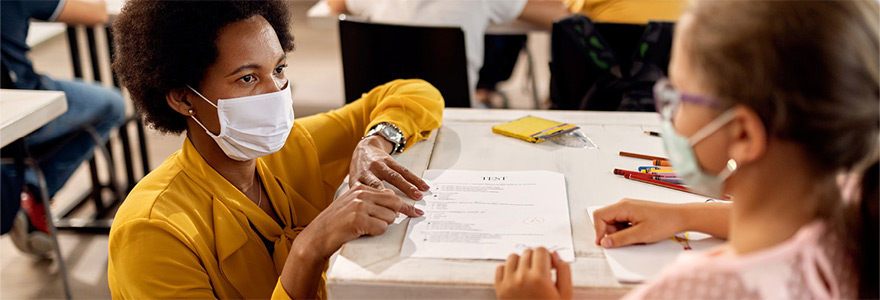
Alumni learn equity can help education’s pandemic recovery

A strong equity focus can help children, families and teachers recover from the effects of COVID-19.
That’s what Education alumni learned during a virtual Homecoming Panel on education.
Professors Prachi Srivastava, Perry Klein, Katreena Scott and Claire Crooks shared their research on education recovery from the pandemic. In particular, they provided recommendations on how to move forward in education.
Srivastava discussed the creation of the Ontario ‘COVID-19 School Dashboard’, an open-access platform that visualizes and maps school infections. Schools are mapped with equity-related variables, such as the proportion of students from low-income households, immigrant status, language and parental education. This can give a clearer understanding of the variable effects of infections on school populations.
A big part of the challenges Ontario students, families and teachers faced was the length of mass school closures. Based on analysis as co-author of the Ontario Science Advisory Table brief on education, Srivastava said the province had the longest school closures in Canada – 26 weeks from March 2020 to June 2021.
“Education wasn’t deemed an essential service,” she said.
She said emerging research studies from comparable education systems in other countries indicate that students from lower-income backgrounds, racialized backgrounds, with less educated parents, special education needs, or who attended schools with a higher percentage of lower-income or racialized students experienced inequitable effects from the pandemic. This is likely because of existing societal inequities.
Srivastava is currently leading an analysis on school infections in elementary schools in Ontario. The study asks if socio-economic factors had an effect on the incidence of student infections within and across schools. She expects that the results will expose inequities.
Developing literacy skills has also been a challenge for students during this time. In addition to periods of school closure, Klein said some students have frequently been absent, and young children can find it difficult to learn online.
“To help students catch up in literacy, Ontario needs to shift toward early literacy education based on research evidence,” Klein said. “The importance of evidence-based early literacy education will also be the message of the Ontario Human Rights Commission inquiry on the Right to Read, which is due to be released this fall."
The pandemic has also impacted healthy relationships. Scott, the academic director of the Centre for Research and Education on Violence Against Women and Children, told the audience violence against women and children has been called the shadow pandemic of COVID because social isolation and stress has increased while the reduction of in-person protection – through working on a job site and participating in neighbourhood groups – has decreased.
What’s more, healthy relationships for children and youth development has also been touched by the pandemic. Crooks, the director of the Centre of School Mental Health, said COVID has increased mental health challenges among children and youth. In particular, the pandemic has disproportionately affected marginalized groups.
“We’re not going to treat our way out of this,” Crooks said. “We need to look at approaches that include mental health promotion or build resilience and positive skills that help protect youth.”
Education dean Donna Kotsopoulos moderated the panel, including a question and answer session from the audience.

